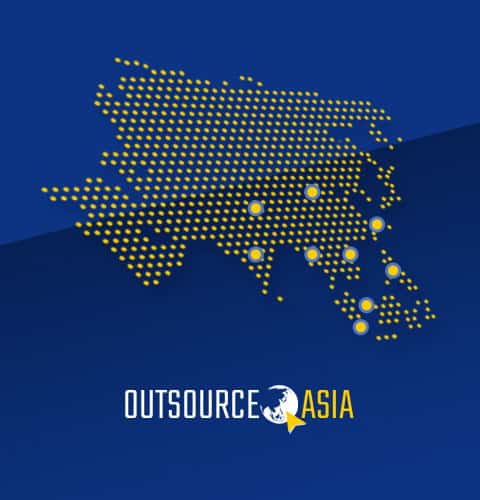As the world becomes increasingly interconnected, businesses are discovering that the best talent is no longer limited by borders. The surge in overseas hiring isn’t just a reaction to local labor market shortages but also a strategic move to embrace diverse perspectives and unique skill sets that international employees bring to the table. From tech companies to startups and beyond, the future of work is global.
This guide will walk you through the steps of hiring, managing, and onboarding overseas employees, ensuring you’re prepared to find and nurture the best international candidates. Whether you’re exploring remote work for the first time or looking to streamline your global talent strategy, here’s everything you need to know.
Part 1: Assessing Overseas Hiring Needs
Before diving into overseas recruitment, it’s essential to understand your company’s current needs and infrastructure. Hiring remote workers requires more than just filling vacancies—it requires strategic planning and a solid foundation to support international collaboration.
Understanding Your Business Needs
A successful global hiring strategy starts with clearly defining what your business needs to grow and scale.
- Scalability: Consider your company’s growth trajectory. Ensure your tech infrastructure—such as cloud drives, communication tools, and collaborative platforms—is in place to support a remote workforce.
- Budget: Set aside funds for recruitment, onboarding, and training, as well as ongoing salaries and benefits. Hiring overseas workers can often result in cost savings compared to domestic hiring, but it’s important to factor in the costs of compliance and technology.
- Skill Requirements: Identify the specific skills that will enhance your team. Certain regions may specialize in fields like customer service, tech support, or digital marketing, allowing you to target candidates with relevant expertise.
Crafting Remote Job Descriptions
Job descriptions for remote roles differ from traditional in-office positions. They must clearly outline expectations, such as:
- Reporting Structure: Clarify who the remote worker will report to and how they will communicate with the team.
- Availability: State the required hours and any flexibility in scheduling.
- Equipment Needs: Specify if your company will provide the necessary tools or if the employee is expected to furnish their own.
A well-crafted job description attracts the right candidates and sets clear expectations from the start.
Readiness to Hire Remotely
Is your company prepared for remote work? Evaluate your readiness by examining:
- Technology: Ensure you have tools like office productivity suites, project management software, and secure communication platforms in place.
- Cybersecurity: Invest in cybersecurity measures, including VPNs, firewalls, and encryption, to protect sensitive company data.
- Collaboration Tools: Use platforms like Slack, Microsoft Teams, or Zoom to facilitate regular communication and maintain team cohesion across time zones.
Should You Hire a Contractor or Full-Time Employee?
When hiring internationally, companies often debate between hiring contractors or full-time employees. Contractors offer flexibility and short-term commitments, while full-time employees are ideal for long-term, consistent work.
Many companies use an Employer of Record (EOR) service to simplify the process of hiring full-time overseas employees. EORs handle payroll, legal compliance, and other employment-related tasks, allowing you to focus on managing your remote team.
Part 2: How to Source Overseas Talent
Once you’ve assessed your hiring needs and prepared your infrastructure, the next step is sourcing top international talent.
Where to Find Remote Candidates
The rise in global hiring has led to a wealth of platforms and services to help you find the right fit. Here are some popular options:
- Freelance Platforms: Websites like Upwork, Freelancer, and Fiverr connect businesses with freelance talent worldwide. These platforms handle payment and compliance, but are generally better for short-term, project-based work.
- Recruitment Platforms: Job boards like LinkedIn, Glassdoor, and Indeed are useful for finding more permanent hires. These platforms allow you to post job listings and review applications, but you’ll need to manage the hiring process and compliance on your own.
- Professional Networks: Tap into your existing networks on LinkedIn or industry-specific groups to find qualified candidates. While this method can take time, it often leads to high-quality referrals.
- Hiring Agencies: Specialized agencies like Third Wave Outsourcing focus on sourcing international candidates and navigating complex legal requirements. This option offers a streamlined, turnkey solution for companies looking to scale quickly.
Onboarding Remote Employees
After finding the perfect candidate, onboarding becomes the next critical step. A smooth onboarding process helps new hires integrate into your company culture and get up to speed quickly.
- Pre-Onboarding: Set up all necessary tools and accounts before the employee’s start date, including access to collaboration software and project management systems.
- Initial Orientation: Welcome new hires with a virtual orientation to introduce them to company policies, key team members, and the tools they’ll be using daily.
- Training: Provide training sessions on workflows, tools, and processes to help your new employee hit the ground running.
- Performance Management: Establish clear performance goals and schedule regular check-ins to track progress and address concerns early.
Part 3: Navigating Compliance and Legal Requirements
Hiring overseas comes with a host of compliance and legal considerations. Different countries have unique regulations around employment, wages, taxes, and worker rights. Here’s what to keep in mind:
- Payroll and Taxes: Ensure that your company complies with local payroll and tax regulations for your remote employees. This often involves understanding local laws and tax treaties between countries.
- Worker Rights and Benefits: Each country has its own standards for worker rights, including minimum wage, health benefits, and paid time off.
- Data Protection: Remote work increases the risk of data breaches, so familiarize yourself with international data protection regulations, such as the General Data Protection Regulation (GDPR) in Europe.
Working with an Employer of Record simplifies this process by managing legal compliance, reducing the risk of fines, and helping you navigate complex local laws.
Conclusion
Global talent offers businesses unparalleled opportunities to access diverse, specialized skills and scale quickly while maintaining cost-efficiency. However, expanding your workforce internationally requires careful planning and preparation, from technology infrastructure to compliance management.
Hiring globally opens the door to a wealth of diverse talent, offering companies the chance to grow and innovate in ways that were previously out of reach. With the right strategy, technology, and understanding of compliance, your business can tap into international talent pools, bringing in specialized skills and cost-effective solutions.


